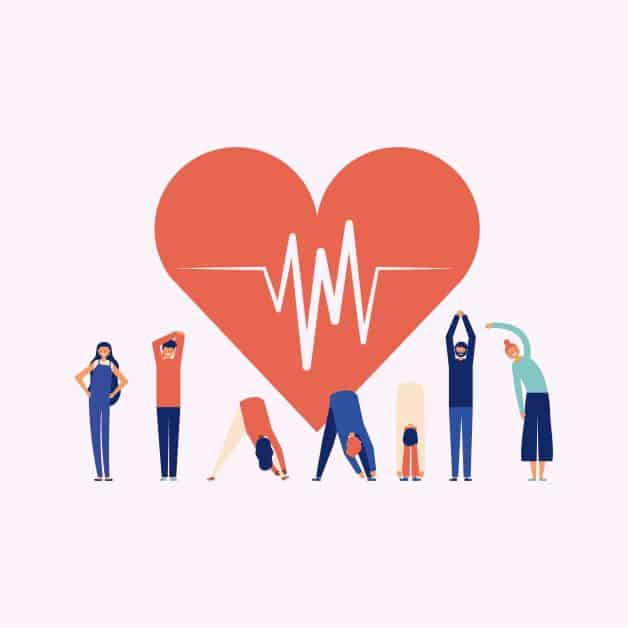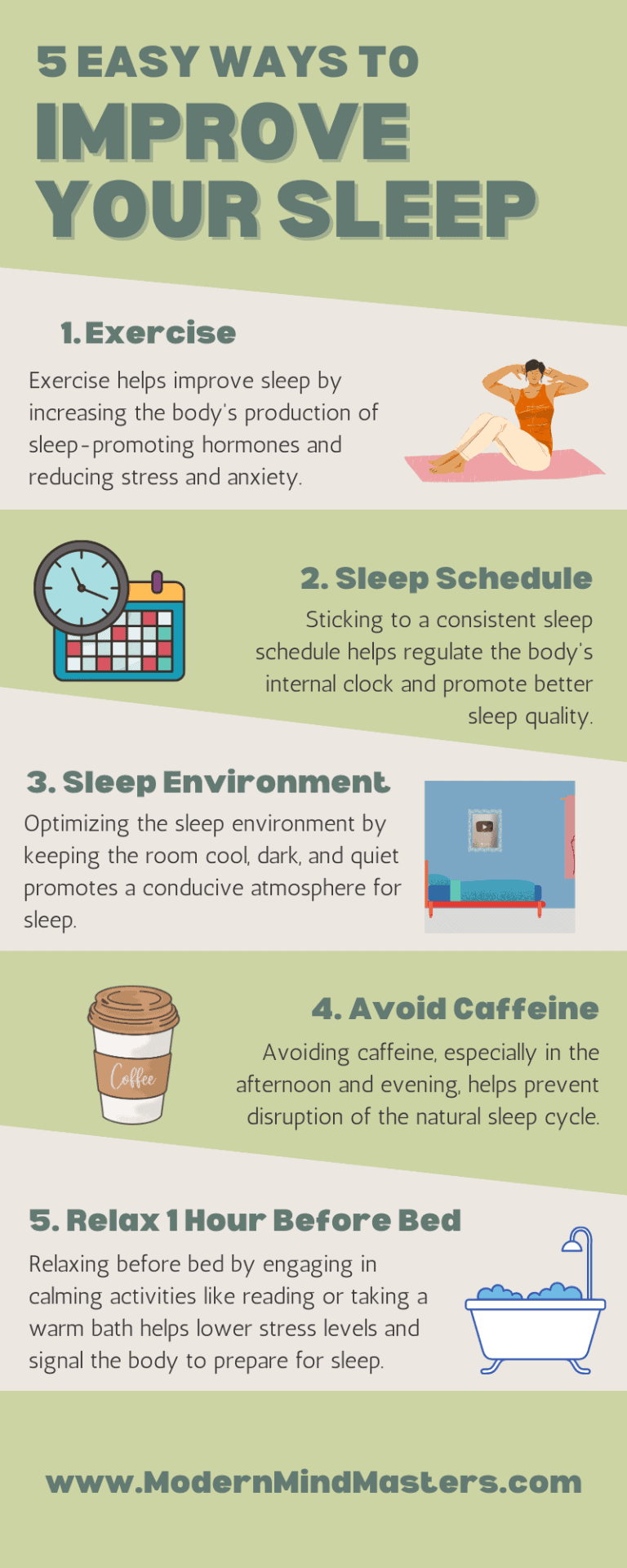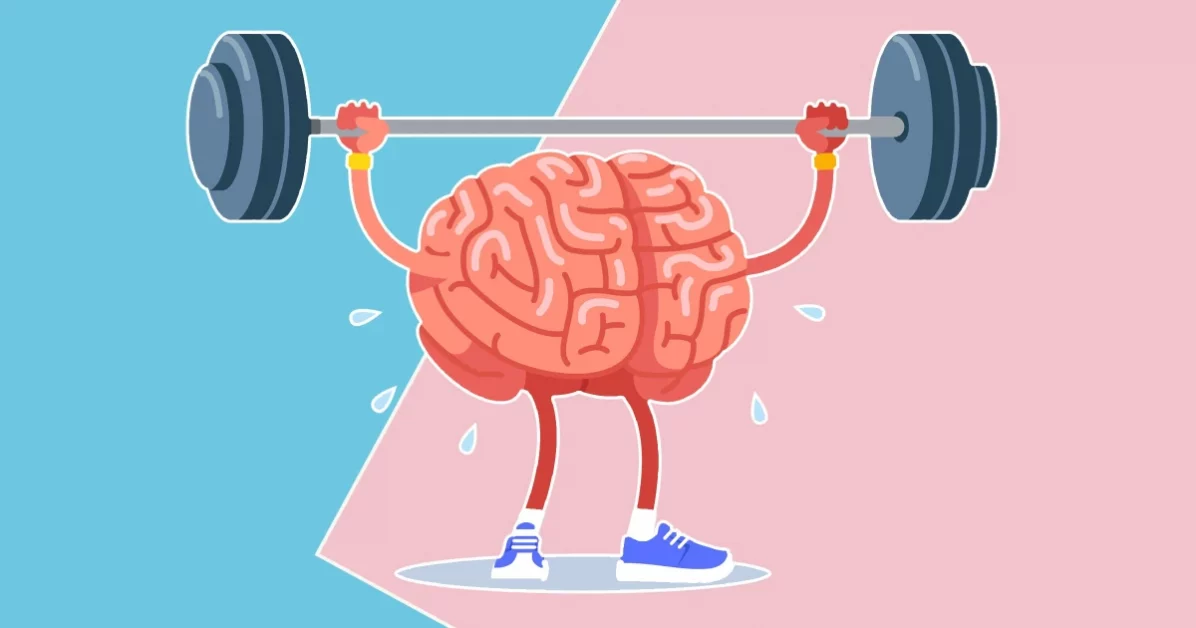
The Ultimate Guide to Believing in Yourself
Self-confidence is a lifelong battle, a way of life that must be approached with the right mentality. Learn everything you need to know to start believing in yourself.

Success starts with small steps. Like in politics, radicalism rarely lasts, more often bringing chaos and carnage than peace and prosperity. Gradualism is key, where small but consistent wins compound over time to reap more reliable rewards.
This is the best approach for those looking to improve their physical health and seek the most impactful changes that can be made today.
This article will not cover the quickest way to lose weight or the fastest way to improve health – changes such as quitting smoking and avoiding excessive alcohol are obvious yet take time, dedication, and planning to achieve.
Instead, we are avoiding the realm of radical change, where most attempt too much and inevitably fail. Instead, we are going for good old-fashioned gradualism, where small and easy modifications made right now will compound over time to instill measurable and reliable change. Consistency is the focus, not intensity.
So without further ado, here are eight small but, when performed consistently over weeks and months, incredibly effective changes you can introduce to your daily routine today to immediately improve your physical health.
Diet may not be the most original topic in a physical health article, but it is vitally important. Note, however, that I am not telling you to eat less; in fact, I may be telling you to eat more!
While a low-calorie diet is the best way to lose weight, lower weight does not equal better health.
A balanced diet is a priority, where we consume sufficient quantities of all the nutrients the body and brain require for optimal health. While eating healthy salads all day will likely make you lean, you will also be heavily nutrient and vitamin deficient, leading to side effects no better than those from being overweight.
Globally, one in five deaths is associated with a poor diet, resulting in 11 million annual deaths. According to the Global Burden of Disease Study, more of these deaths were attributed to insufficient amounts of whole grains, fruits, nuts, and seeds than to diets with high levels of trans fats, meat, and sugary drinks.
Diets low in whole grains and fruit (and excess sodium) together accounted for more than half of all diet-related global deaths in 2017. In addition, only 12% consumed the recommended amount of nuts and seeds (around 3g average intake per day, compared with 21g recommended).
In addition, the global diet includes just 16% of the recommended amount of milk (71g average intake per day, compared with 435g recommended) and around 25% of the recommended amount of whole grains (29g average intake per day, compared with 125g recommended).
The fastest and simplest remedy to this is to add 21g of nuts to your diet (a small snack pot) and a large bowl of oatmeal (for increased whole grains and milk) every day. These two simple additions will overcome the two primary sources of dietary deficiencies shown in the study and likely provide an immediate and noticeable boost to your physical health.

Again, not the most original advice, but the advantages of simply reducing (and ideally eliminating) consumption of sugary drinks, such as soda and fruit juice, will provide immediate benefits.
Between 1970 and 1997, US consumption of non-diet soft drinks rose by 86% while the prevalence of obesity increased by 112% during this same period.
Although correlated, these do not prove that sugary drinks directly cause increased obesity, but it is certainly a strong indication.
While some foods, such as sweets and chocolate, also contain high quantities of sugar, sugar intake from liquids is particularly problematic due to the speed at which sugar is consumed.
Fruit juice is not much better; while at least containing vitamins and minerals, the concentration of sugar is still too high. It is far better to eat solid fruit.
High-sugar beverages also damage teeth (sugar and acid will cause cavities and root rot), increase weight gain, and rarely contain nutritional benefits.
Findings from several studies point to sugar-sweetened beverages increasing the risk of heart disease and type 2 diabetes, even in people who are not carrying excess body fat.
Interestingly, studies also show that the increase in energy intake associated with soft drink consumption is greater than what could be explained by the consumption of the beverages alone, resulting in a greater increase in calories than can be explained by the calories from the drinks themselves.
Although the reasoning for this is not yet fully understood, such drinks are thought to stimulate appetite or suppress satiety, perhaps because of a high glycemic index producing a rapid rise in blood sugar levels.
In a study of 91,249 women tracked over eight years, those who consumed one or more soft drinks per day were twice as likely as those who consumed less than one per month to develop diabetes throughout the course of the study.
When replaced by diet soft drinks, however, the increased risk was no longer present, suggesting that the risk was specific to sugar-sweetened soft drinks.
By reducing sugary drink intake, we get a two-for-one bonus – reducing calories and reducing the detrimental health effects of sugar. For additional benefit, try replacing it with a glass of milk or a fruit and vegetable smoothie to add a broader variety of nutrients. While it may take some willpower to break the habit, your body will soon thank you.

Stress is a silent killer that can destroy your health regardless of your diet or exercise routine. Through elevated levels of hormones such as cortisol, adrenaline, and noradrenaline, stress can indirectly increase blood pressure and heart disease, diabetes, and depression.
The effects of stress on the nervous system have been known for decades, but recent research has shown that stress has detrimental effects on the human nervous system and can cause structural changes in different parts of the brain, negatively impacting cognition, learning, and memory, while compromising the immune and cardiovascular systems.
While just as damaging to physical health as an unbalanced diet and poor exercise, stress is considerably harder to eliminate.
We cannot simply turn off our financial worries or make family life easy and stress-free in the same way we can stop drinking sugary drinks. But there are some steps and exercises we can implement into our daily routine to help ease the burden.
Such exercises focus on mindfulness – the practice of being fully present and aware of thoughts, feelings, and surroundings in the present moment without judgment. You may think of this as fanciful and a waste of time, but mindfulness exercises are a vital investment in your health.
Research collaboration across 200 studies showed a strong positive correlation between mindfulness-based therapy and lowered stress, anxiety, and depression, all of which indirectly affect physical health.
Mindfulness-based therapy has also been shown to reduce pain, fatigue, and stress in people with chronic pain. Other studies have found evidence that mindfulness could boost the immune system and speed up recovery from flu and colds.
While the exact mechanisms behind mindfulness-based therapy on physical health are still in question, current thinking suggests that it influences two different stress pathways in the brain associated with attention and emotional regulation.
Three immediately accessible and simple activities to practice mindfulness at home include meditation, deep breathing exercises, and simply dedicating time to relax and enjoy yourself, free from any stressors such as work and family. There are plenty of great videos on YouTube to help ease you into these activities.
Related article – The Lost Art of Mindfulness and Mediation.
Of all the items on this list, reducing stress is arguably the most difficult; we are often not in control of our stressors as we are our diets and habits. But simple activities, such as five minutes of meditation or deep breathing, will go a long way in suppressing some of the most harmful stress-related hormones.
Water is essential for life; from the time that primeval species first ventured from oceans to land, preventing dehydration has been one of our greatest priorities.
Without water, humans can survive for just a few days. Since water comprises 60% of our body weight, we must remain hydrated, not just to survive, but to also thrive. Nothing will sap your energy as fast as even mild hydration.
The list of detriments from a lack of water is near endless: decreased blood volume, which can lead to reduced oxygen and nutrient supply to the organs and tissues, increased heart rate and body temperature, decreased urine output, dry mouth and throat, headaches, fatigue, dizziness, and in severe cases, heat exhaustion or heat stroke.
A lack of water can also influence cognition, impairing short-term memory and psychomotor skills. It is also a leading cause of headaches and migraines as the brain cells shrink when lacking water.
How do you know if you’re getting enough water? Your pee is a good indication. A water deficit increases the ionic concentration of the extracellular compartment, causing cells to shrink. As these dehydrated cells shrink, the kidneys produce a smaller volume of more concentrated urine to preserve what little water is left.
As a result, more odorous and yellow urine indicates a degree of dehydration, while almost clear pee implies good hydration.
Drink more water generally, especially a glass in the morning after waking up from an 8-hour water fast. If you notice your pee is yellow or has a strong odor, it is a strong visual indication that you may need more water.

Sleep is vital for the physical health of both the brain and the body; it is where we enter a state of repair to rejuvenate from the day’s activities. While asleep, the brain performs many cognitive processes, such as strengthening or weakening neural pathways (through brain plasticity) and flushing the brain of unhealthy or dead cells.
Without adequate sleep, we will not just feel groggy and tired, but our physical and mental health will also suffer as the body and brain have not had enough time to build and repair vital cognitive facilities. Research also shows that lack of sleep increases the risk of obesity, infections, and heart disease.
While most advocate the importance of obtaining enough sleep, quantity is just one component – sleep quality is just as crucial.
Research has shown that exercise during the day leads to improved sleep quality, thought to be linked to its stress-relieving properties. Endorphins released during moderate activity reduce anxiety and tension by acting as natural mood elevators.
Our sleep can be split into two phases: REM (rapid eye movement) and non-REM. It is during REM sleep (deep sleep) that most of the neural rewiring and recovery occurs. Both the quality and quantity of REM sleep we achieve, therefore, significantly affect our ability to repair and rebuild.
While exercise is one way to improve sleep quality, ensuring your caffeine intake does not affect your sleep is equally important, if often overlooked.
Caffeine has a half-life of 7 hours, meaning that half the caffeine ingested (from coffee or alcohol, for example) remains in your system after 7 hours.
Since caffeine acts to block adenosine, a neurotransmitter that accumulates in the brain during waking hours and promotes sleep by inhibiting wake-promoting neurons, taking caffeine within 7 hours of bedtime may prevent you from falling, and staying, asleep.
Sleep quality is essential to not only survive but also thrive. See this article here for everything you need to know about improving the quality of your sleep.

Office jobs are a mixed blessing; while they allow us to work from the safety and comfort of a stable environment, with all the free coffee we can drink, sitting in front of a computer for extended periods is one of the worst things we can do for our long-term mobility.
You may think an office job to be less risky than working outside, but reports of varicose veins, stiff necks, and numbness in the legs are more common among seated employees than those doing more labor-intensive tasks.
One of the most serious issues is the lack of blood flow while sedentary for extended periods, where blood returning to the heart from the lower legs can pool.
Over prolonged periods, swollen and numb legs will eventually lead to varicose veins. Muscles deprived of adequate blood flow also accelerate fatigue, one reason why employees who sit all day often report feeling physically tired at the end of a shift.
The muscular system is highly adaptive. While this is good for increasing muscle mass and getting stronger, it can prove detrimental when working the other way, where extended periods spent in poor postures will lead to weakness and mobility issues.
Those with desk jobs commonly develop anterior pelvic tilt, where the hip flexors and quadriceps in the front of the legs and lower back shorten while the core and glutes elongate and weaken. Eventually, this will lead to “Donald Duck Butt” and hunching of the shoulders, causing all manor or discomfort and long-term mobility issues.

Experts recommend performing 5 minutes of moderate movement for every hour spent sitting, allowing the muscles to lengthen and return to their healthy natural positions.
It’s not always easy to start moving every hour in an office setting; suddenly breaking out into a jog across the office floor will likely induce curious looks from your boss and colleagues.
But at least grab some water or use the restroom, or take a short walk up and down the stairs if possible. Perform light stretches to lengthen the muscles and return them to their natural positions.
The human heart beats around 100,000 times a day and 2.5 billion times over an average lifetime. Keeping this vital and hard-working organ in good shape, therefore, is of utmost importance to our day-to-day physical health.
Most articles will tell you to walk for 10 mins a day, but in reality, while better than nothing, you will not reap much of the above rewards without significantly raising your heart rate. Your heart is a muscular organ, and like any other muscle, needs to be worked to be strengthened.
Research shows that regular moderate to intense exercise boosts an array of physical health benefits, including improved cardiovascular health, better weight management, and reduced risk of chronic diseases such as diabetes and some types of cancer.
A 2018 study published in the journal Circulation found that higher levels of physical activity were associated with a lower risk of cardiovascular disease and mortality, even among individuals with a genetic predisposition for heart disease.
Another study published in the Journal of the American Heart Association in 2019 found that higher levels of physical activity were associated with a lower risk of developing certain types of cancer.
While the exact amount of time we should spend exercising depends on the individual, the American Heart Association recommends at least 150 minutes (2.5 hours) of moderate-intensity aerobic exercise per week or 75 minutes (1.25 hours) of vigorous aerobic activity (or a combination of both).
This works out to 20 minutes of moderate activity a day for seven days a week or 30 minutes for five days (half for vigorous activity). If this sounds daunting, build up to it incrementally; any amount of exercise is better than none, and some effects are immediate.
Experts recommend exercising within 55 to 85% of your maximum heart rate for at least 20 to 30 minutes to get the best results from aerobic exercise. The optimum and maximum rates per age group that you should target can be found online.
The best part of performing moderate to intense exercise is that some benefits are immediate, such as an instant improvement in mood, reduction in stress, and improved cognitive functioning, specifically attention and working memory.
Dedicate 20 minutes to your day to get your heart pumping, creating significant benefits for your entire body immediately and longer term. Signing up for a gym is also not necessary – cycling, jogging, or home equipment avoid the need to spend time traveling (bikes and rowing machines are reasonably inexpensive). The benefits from such a small time sacrifice are simply too good to pass up.

One intriguing scientific development of recent years is the role of gut microbiomes in the functions of the body and brain.
The gut microbiome refers to the community of microorganisms living in the digestive tract that play a role in digestive, metabolic, and immune processes and impact overall health. Research increasingly shows that these microorganisms in the gut act as intermediaries between food and the brain.
When the sorts of microorganisms found in yogurt and fermented foods are missing, for example, trials have shown a corresponding increase in anxiety. Dr. Ted Dinan, a professor of psychiatry at University College, Cork, has written about how a person’s capacity to deal with stress can be significantly altered by a single strain of bacterium in the gut.
More specifically, the two species Bifidobacterium and Lactobacillus were found to reduce stress on trial mice, suggesting that, when ingested, some types of gut microorganisms may have similar effects to antidepressants or anti-anxiety medications.
A similar effect was noted in multiple studies, identifying the gut microbiota as a key player in the response to psychiatric disorders, including depression, anxiety, and cognition.
Some foods that promote a healthy gut microbiome include fermented foods, such as yogurt, prebiotic foods, such as onions and bananas, omega fatty acids from fish, and high-fiber foods, such as whole grains, fruits, and vegetables. Try adding a few small portions of these into your diet.

While maintaining physical health is a lifelong endeavor, instigating change can start with just a few simple changes.
You are not expected to tackle all steps immediately; remember, gradualism is the key, where small but simple steps, repeated consistently, compound over time to induce measurable, reliable, and manageable progress.
Pick one change right now, whichever one appeals to you the most, and plan to start it today. Once you are comfortable with the change, whether that takes a day, week, or month, add another until you’ve mastered the list.
Taking care of your physical health is like investing in the stock market – the earlier you start, the more likely you are to see long-term gains. And like the stock market, you invest now for a better future, when you’re finally able to retire and enjoy the fruit of your labor.

Self-confidence is a lifelong battle, a way of life that must be approached with the right mentality. Learn everything you need to know to start believing in yourself.

Humans are unpredictable by nature, so boosting our social skills is one of the strongest weapons we can use for successful communications. Here are 3 of the best books on social skills.

While Intelligence is linked to success, it is genetic and cannot be significantly improved. Persistence, therefore, is what we must focus on.

Explore how to find inner peace through removing distractions, making time to embrace silence, and tuning into your emotions through mindfulness.

For years we were told meat was bad. The truth? Is meat good for you — absolutely. It’s one of the most powerful health foods

GABA is the primary inhibitory neurotransmitter in the brain, preventing over-excitement of neurons to play a critical role in managing anxiety, stress, and sleep.
© 2025 Modern Mind Masters - All Rights Reserved
You’ll Learn:
Effective Immediately: 5 Powerful Changes Now, To Improve Your Life Tomorrow.
Click the purple button and we’ll email you your free copy.